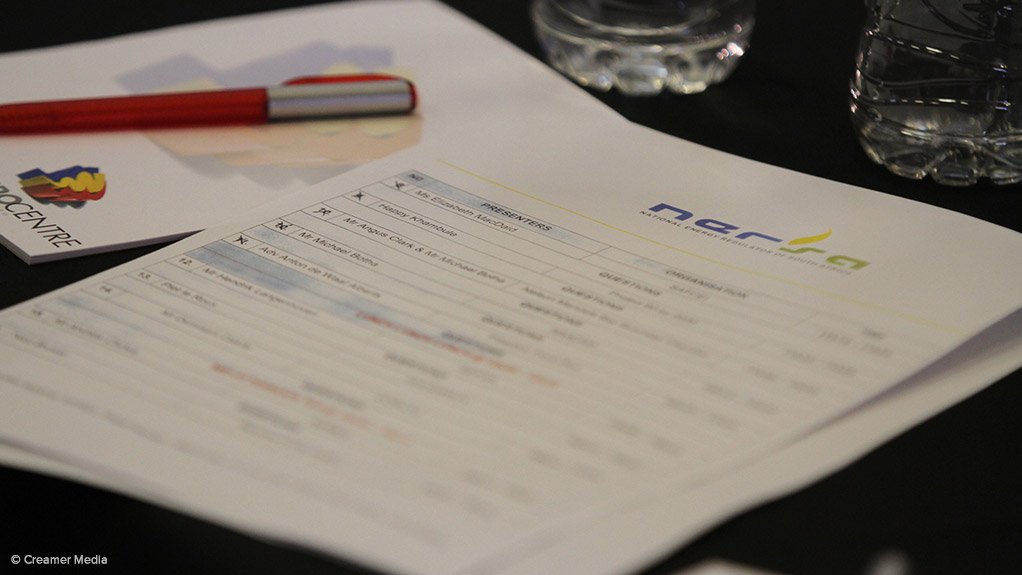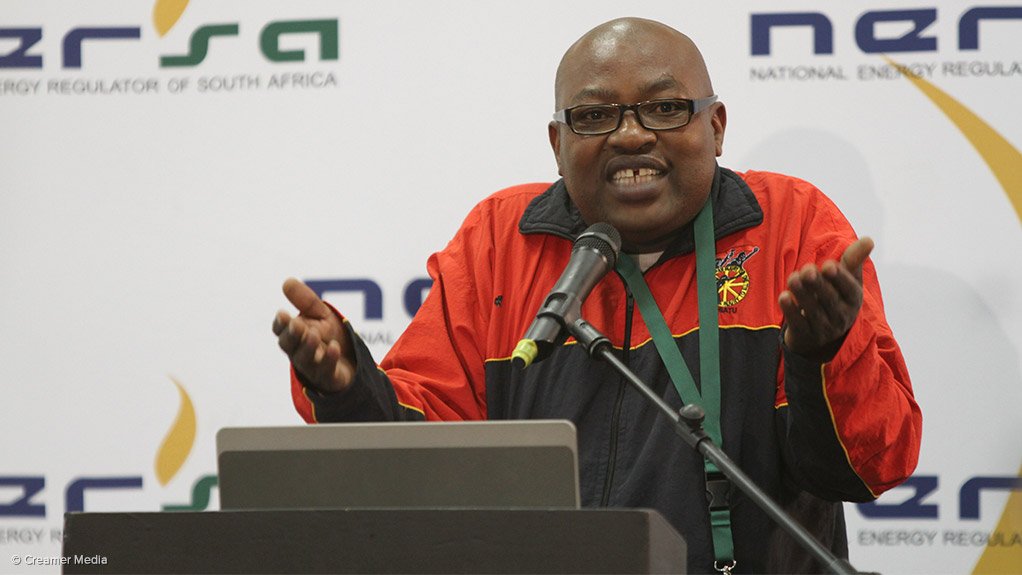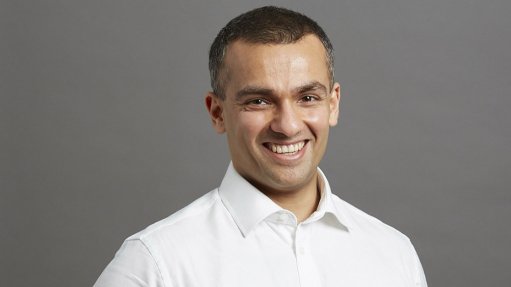Amid questions on legality of Eskom's reopener, business appeals for tariff moderation
Organised business called on the National Energy Regulator of South Africa (Nersa) to set aside Eskom’s “selective reopener”, arguing that there was no legal basis for such an application, which represented a radical and potentially destabilising departure from South Africa’s established regulatory framework.
Eskom has applied for a partial reopening of the third multi-year price determination, which, if approved, would result in a 25.3% increase in its 2015/16 tariffs, inclusive of the 12.69% already granted for the financial year.
The application focuses primarily on securing cash, for the coming three years, to operate its diesel-fuelled generators in the Western Cape (R10.9-billion), as well as to pay for short-term contracts with independent power producers (R5.3-billion) under the short-term power purchase programme (STPPP).
The application also includes an application for an increase in the environmental levy, which has been announced by Finance Minister Nhlanhla Nene, but which has not yet been implemented.
Business Unity South Africa’s (Busa’s) Martin Kingstone argued that the selective reopener be set aside in favour of a regulatory clearing account, or claw-back, calculation for 2013/2014 and 2014/15 as provided for in Nersa’s rules.
This view was restated by the Energy Intensive User Group, which argued that the multi-year price determination (MYPD) methodology prescribes how variations in costs of primary energy and variance on capital expenditure can be dealt with and what should trigger a reopening of the MYPD.
“To depart radically from this framework and due process, at this late stage, creates unacceptable levels of regulatory uncertainty,” he asserted.
Kingstone added that domestic businesses – which were already being forced to absorb approved electricity increases of 123.72% between 2010 and 2018 – could not plan their investments, operations and long-term strategies “without adequate warning of tariff increases, regardless of the magnitude”.
However, should Nersa decide not to set aside the reopener, Busa urged the regulator to limit the increase to take account of only one year of open-cycle gas-turbines (OCGT) operations, rather than three years. In addition it should exclude the environmental levy and approve only costs of the additional STPPP contracts verified by Nersa as being below OCGT costs.
In addition, the savings associated with not burning the coal as planned at Medupi and Kusile should be taken into account; Busa estimated these savings at R11.4-billion for the three-year period from 2013/14 to 2015/16.
It, therefore, recommended, that the 2015/16 tariff be increased by only 2.86% to 15.92%, which would raise the average tariff to 82.02c/kWh.
This position was supported by the Steel and Engineering Federation of South Africa’s chief economist Henk Langenhoven, who warned that further sharp tariff increases would “seriously jeopardise” the viability of an industry that was facing domestic and international headwinds.
A similar sentiment was expressed earlier by the Chamber of Mines, which warned that the sector was at a “tipping point” and that the imposition of an additional power tariff increase would severely jeopardise the sustainability of the sector.
POLITICAL, LABOUR PUSH BACK
South Africa’s official opposition the Democratic Alliance (DA), meanwhile, slammed the “continuous capitulation” of Nersa over the past 12 years in granting Eskom above-inflation tariff increases, despite the utility’s opacity on its costs and declining efficiency.
The DA’s Gordon Mackay urged Nersa to reject the application and the notion, outlined by Eskom CEO Brian Molefe, that South African pay up or face load-shedding. Instead, alternative-funding mechanisms should be explored, including the sale of 30% of the shares in the utility to institutional investors.
Similarly strident points were made by the Freedom Front Plus’s Advocate Anton de Waal Alberts, who questioned the morality of leaning on cash-strapped consumers, while the outlooks for the economy and employment were so precarious.
Presenters from the Congress of South African Trade Unions (Cosatu), the National Union of Metalworkers of South Africa and Solidarity all called on Nersa to reject the selective reopener.
Cosatu’s Dumisani Dakile said government, as shareholder, had the responsibility to fund Eskom and ensure that the allocated funds were spent efficiently.
“Cosatu doesn’t support any further burden on the working class and the poor through high electricity tariffs,” he said, adding that Cosatu stood ready to engage in protest action should any further increases be sanctioned.
Somewhat more surprisingly, Numsa suggested that the extensive use of the OCGTs, as implied in Eskom’s application, be rejected in favour of a “negotiated” and “planned” load-shedding schedule. Such load-shedding would provide Eskom with the space required to implement a far more rigorous maintenance plan to restore the performance of the coal-fired power stations over the medium term.
In parallel with this "painful" process, the union argued that a judicial commission of inquiry be convened to delve into the underperformance of the State-owned utility and to formulate remedies.
Solidarity Research Institute head Piet le Roux argued, meanwhile, that the "fundamental problem" was Eskom's monopoly status. “When Nersa announces a new tariff, it leaves the South African public with no other choice but to accept the deal: if they want electricity, they have to accept it. The result of the monopolistic structure of electricity supply in South Africa is that it has become virtually impossible to supply electricity competitively."
Comments
Press Office
Announcements
What's On
Subscribe to improve your user experience...
Option 1 (equivalent of R125 a month):
Receive a weekly copy of Creamer Media's Engineering News & Mining Weekly magazine
(print copy for those in South Africa and e-magazine for those outside of South Africa)
Receive daily email newsletters
Access to full search results
Access archive of magazine back copies
Access to Projects in Progress
Access to ONE Research Report of your choice in PDF format
Option 2 (equivalent of R375 a month):
All benefits from Option 1
PLUS
Access to Creamer Media's Research Channel Africa for ALL Research Reports, in PDF format, on various industrial and mining sectors
including Electricity; Water; Energy Transition; Hydrogen; Roads, Rail and Ports; Coal; Gold; Platinum; Battery Metals; etc.
Already a subscriber?
Forgotten your password?
Receive weekly copy of Creamer Media's Engineering News & Mining Weekly magazine (print copy for those in South Africa and e-magazine for those outside of South Africa)
➕
Recieve daily email newsletters
➕
Access to full search results
➕
Access archive of magazine back copies
➕
Access to Projects in Progress
➕
Access to ONE Research Report of your choice in PDF format
RESEARCH CHANNEL AFRICA
R4500 (equivalent of R375 a month)
SUBSCRIBEAll benefits from Option 1
➕
Access to Creamer Media's Research Channel Africa for ALL Research Reports on various industrial and mining sectors, in PDF format, including on:
Electricity
➕
Water
➕
Energy Transition
➕
Hydrogen
➕
Roads, Rail and Ports
➕
Coal
➕
Gold
➕
Platinum
➕
Battery Metals
➕
etc.
Receive all benefits from Option 1 or Option 2 delivered to numerous people at your company
➕
Multiple User names and Passwords for simultaneous log-ins
➕
Intranet integration access to all in your organisation






















